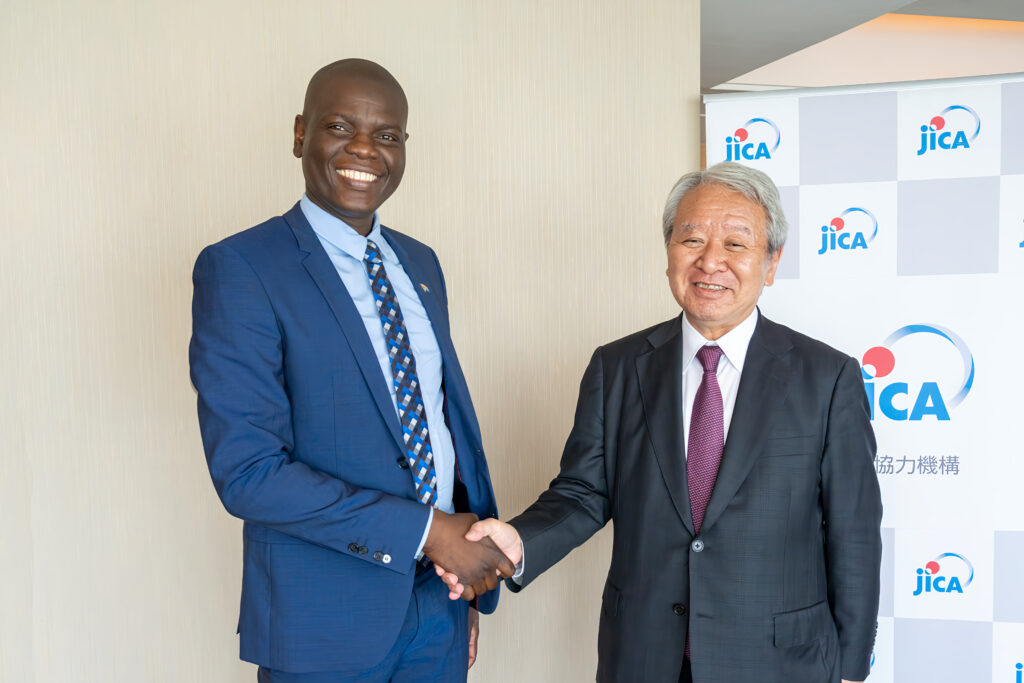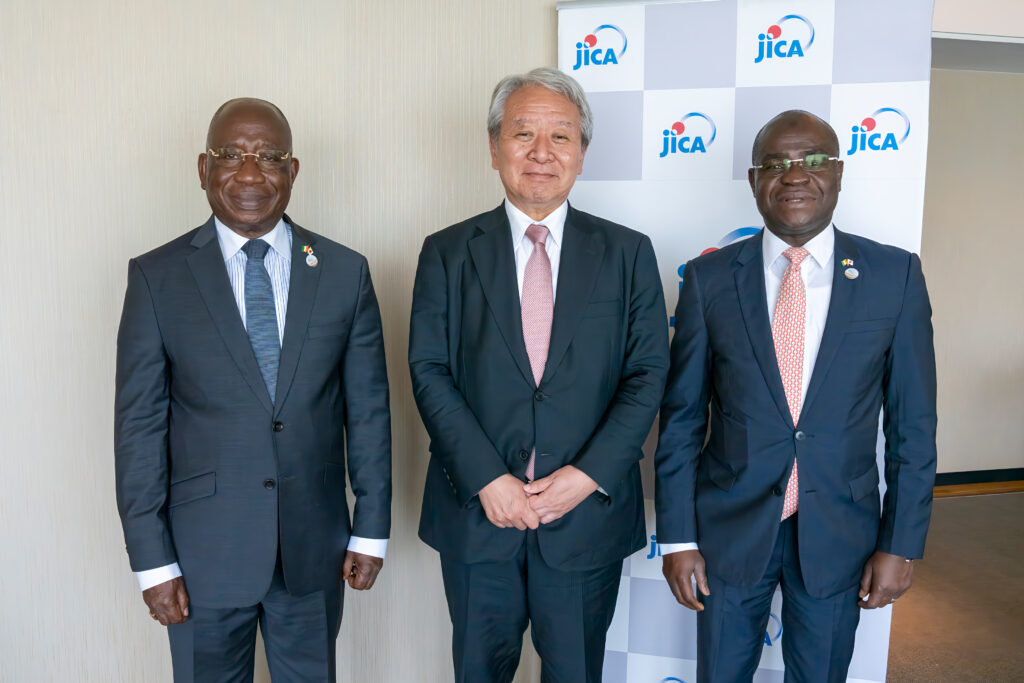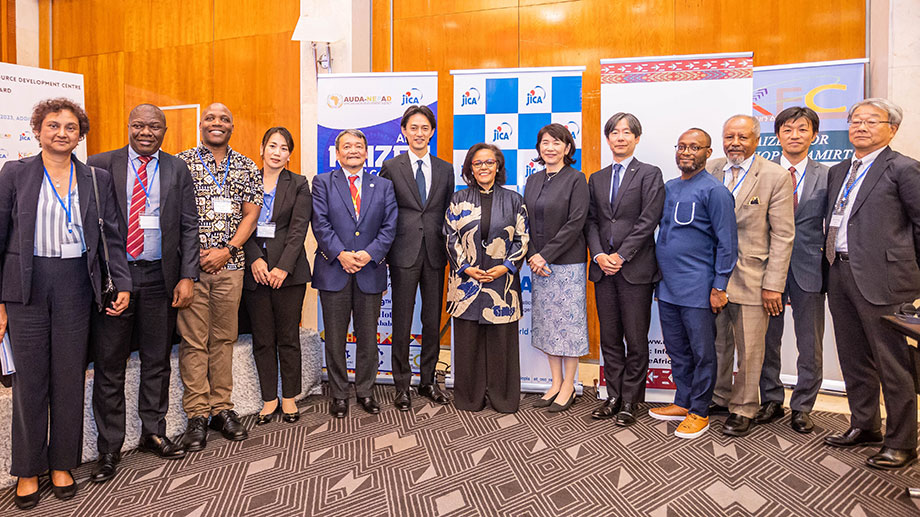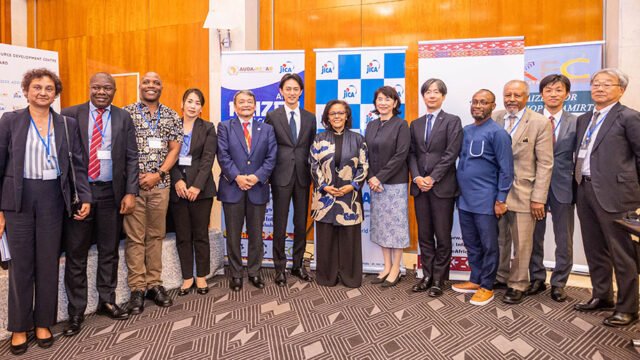In a compelling media briefing held on August 2, 2025, the Japan International Cooperation Agency (JICA) offered journalists and influencers from across Africa a detailed blueprint of its strategic role during TICAD 9, the Ninth Tokyo International Conference on African Development, scheduled for August 20–22, 2025 in Yokohama, Japan.
Table of Contents

A Fresh Perspective on Africa–Japan Collaboration
Hosted as a precursor to TICAD 9, the media event illuminated the depth and diversity of JICA’s multi-sectoral partnerships throughout Africa. JICA emphasized its focus on human-capacity development, STI (science, technology & innovation), and education initiatives, showing how these are powering technology-led solutions across the continent.
In keeping with TICAD 9’s broader agenda of “People, Planet & Prosperity in a Changing World,” JICA reaffirmed its guiding principle of co‑creation—an approach rooted in partnership, tailored interventions, and African-led ownership.
Spotlight on Tech‑Education: J‑tec4ed and AJ‑INSPIRE
Among the highlights was JICA’s upcoming flagship initiative “J‑tec4ed”, launched in collaboration with partners like the Global Partnership for Education (GPE) and AFRECO. This program, showcased at the TICAD 9 Partner Project Round Table, aims to modernize African education systems through digital integration, teacher training, and curriculum reform.
Complementing this is the AJ‑INSPIRE network, introduced under “TICAD 9 Thematic Event: Promotion of International Brain Circulation.” Anchored by E‑JUST (Egypt–Japan University of Science & Technology), JKUAT (Jomo Kenyatta University of Agriculture & Technology) in Kenya, and Stellenbosch University in South Africa, AJ‑INSPIRE is positioned as a dynamic academic platform. Its goal: to foster joint research, knowledge-sharing, and student exchanges between Japan and African universities, According to World Bank.
Key moderators and speakers—among them senior representatives from the World Bank’s Africa arm—outlined how AJ‑INSPIRE will actively promote scientific collaboration and capacity building in fields such as artificial intelligence, renewable energy, and biotechnology.
Illustrative Case Studies: JICA in Action
During the briefing, JICA shared real-world success stories:
- ABE Initiative (African Business Education Initiative for Youth): Since its launch in 2013, this program has facilitated master’s‑level education for hundreds of African scholars in Japan, coupled with internships with Japanese companies, strengthening business and technical ties between both regions.
- Support for female students and academic exchange, built on partnerships with UNESCO IICBA and the Gates Foundation to address gender gaps in education across Africa. A recent workshop, backed by the Government of Japan and UNESCO, focused specifically on improving girls’ educational access ahead of TICAD 9.
These initiatives showcase a persistent dedication to human-centric development, one where education, opportunity, and gender equity intersect to drive long-term impact.

Financial Innovation and Infrastructure Support
JICA highlighted broader development mechanisms tied to TICAD 9:
- Africa-TICAD Bonds: Scheduled for launch in August 2025, these yen-denominated sustainability bonds will finance new and ongoing projects across Africa. Notably, projects associated with coal power will be excluded, reflecting JICA’s environmental commitments.
- A recent strategic alignment with the African Development Bank (AfDB) in June 2024 underscored the need for blended finance, concessional loans, and debt‑management capacity building. This partnership is seen as critical to funding education, infrastructure, and technological development ahead of TICAD 9.
These financial channels are integral to reinforcing long-term partnerships and enabling scalable education and technology initiatives.
Aligning with Africa’s Agenda: Inclusive and Sustainable Growth
JICA’s media briefing stressed that technology and education are not isolated domains—they are central to Africa’s broader development vision. Themes such as green innovation, universal health coverage (UHC), and startups for youth and women were highlighted as common priorities shared between Africa and Japan.
The agency emphasised that TICAD 9 will build upon decades of African-led development, with Japan as a facilitative partner. At the heart lies a message of co‑creation, where Japanese expertise meets African innovation and stakeholder engagement ensures local ownership and sustainability.
What Journalists and African Stakeholders Learned
Attendees heard clear, tailored talking points they can relay:
- TICAD 9 will provide a substantial platform for showcasing education-centric tech innovation and strengthening academic networks between Japan and Africa.
- JICA’s initiatives—from scholarships to bonds and digital learning platforms—are actively shaping Africa’s next wave of development.
- Media support in promoting and contextualising these solutions is vital for amplifying their impact across communities and decision-making circles.
Looking Ahead: Education as a Catalyst for Transformation
With TICAD 9 just weeks away, JICA’s briefing positioned tech-enhanced education as a catalyst for long-lasting transformation. From digital tools for teachers to international research networks, these interventions aim to equip African youth with future-ready skills and bridge regional disparities in learning.
As the African continent embraces demographic growth and technological evolution, JICA’s partnerships with institutions, financiers, and multilateral platforms seek to deepen educational quality, research collaboration, and tech integration.
Why This Matters
- For Education Stakeholders: This briefing reaffirms JICA’s commitment to building robust educational ecosystems through scholarship, curriculum innovation, and cross-border exchange.
- For Policymakers and Development Partners: It highlights scalable funding tools like TICAD Bonds and emphasises joint ownership of development programs.
- For African Audiences: It links local realities to global frameworks, showcasing how targeted collaboration can unlock opportunities in STEM, innovation, and sustainable development.

Summary Table
| Theme | JICA Initiative | Impacts |
|---|---|---|
| Tech-Education Integration | J‑tec4ed, AJ‑INSPIRE | Digital classrooms, joint research, academic mobility |
| Scholar Empowerment | ABE Initiative, UNESCO programs | Scholarships, internships, female empowerment |
| Sustainable Financing | Africa‑TICAD Bonds, AfDB partnership | Capital for education, climate‑friendly infrastructure |
| Co‑creation Approach | Africa-driven partnerships & media | Local ownership, culturally relevant solutions |
Conclusion
In this pre‑TICAD 9 media briefing, JICA not only catalogued past initiatives but charted a forward-looking agenda that places tech-led education and capacity building at the core of Africa’s development trajectory. By fostering academic networks, leveraging innovation, and catalysing inclusive financing, JICA aims—and invites media audiences—to help co-create a future where education transforms societies and unlocks potential across the continent.
With TICAD 9 fast approaching, JICA’s message is clear: the future of African development is rooted in education, innovation, and partnership—with Japan poised to walk alongside Africa in this journey.
Join Our Social Media Channels:
WhatsApp: NaijaEyes
Facebook: NaijaEyes
Twitter: NaijaEyes
Instagram: NaijaEyes
TikTok: NaijaEyes








































